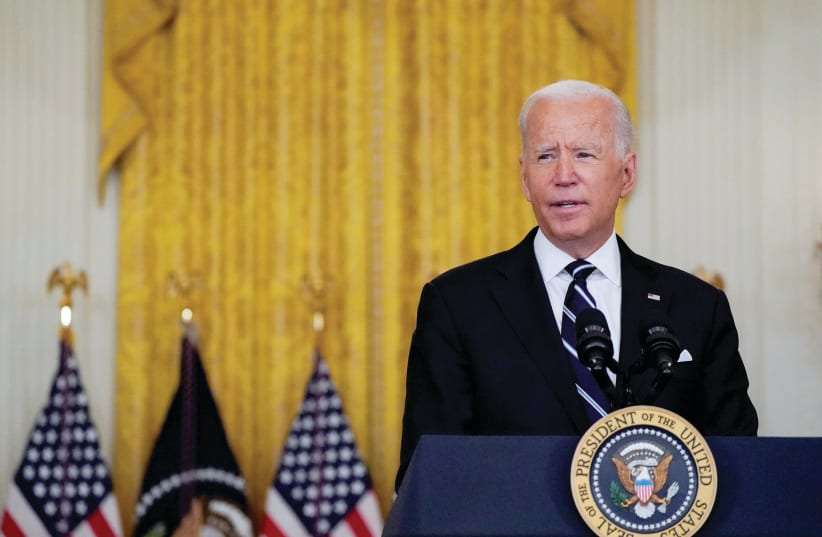Prime Minister Naftali Bennett’s White House visit next week provides the Biden administration a valuable opportunity to live up to its campaign promises and take meaningful steps to keep the path open for a future two-state solution.
While focusing on other foreign policy priorities and reluctant from the get-go to launch a full-fledged diplomatic peace process between Israel and the Palestinians, US President Joe Biden and his aides know that the path to a two-state solution is narrowing at an alarming pace. Construction in the most sensitive areas of the West Bank is intensifying, adding physical obstacles to peace. At the same time, among Palestinians, public support is rapidly declining for Israel’s Palestinian partners for peace – the PLO, Mahmoud Abbas and his Palestinian Authority (PA) – while domestic support for the extremist Hamas movement surges.
If the Biden administration wants to secure a path to a future peace, it must act proactively now rather than default to the comfort of benign neglect. The administration should address both the deteriorating situation on the ground and the erosion of support for Palestinian leaders committed to a peaceful two-state solution.
True, Israel’s new coalition was not formed as a peace government. Negotiating with the Palestinians toward a peace accord is not a part of its platform, and Bennett is an avid opponent of a two-state solution. However, the makeup of the governing coalition includes politicians who are sincerely committed to peace. The government is more likely than its predecessor to consider American concerns and to act upon American demands to freeze or curb West Bank settlement construction and dismantle illegal outposts – if such demands are credibly made.
Former prime minister Benjamin Netanyahu adopted a peace-damaging policy of intentionally and systematically weakening the PA and Abbas, while politically empowering Hamas in Gaza, as a means to prevent Palestinian unification and Palestinian statehood. Netanyahu is quoted as saying just that. The Trump administration, with its so-called “peace plan,” did much the same.
But Biden has a different agenda. If he is sincere about it, his administration must do whatever it can to empower moderate Palestinian leaders and elevate their platform of political pragmatism. The Palestinian Authority’s credibility, among its own people, is at an all-time low.
As leading Palestinian pollster Khalil Shikaki recently observed, “This is the first time in the Israeli-Palestinian conflict in which Hamas assumes the role of representing and defending the interests of the entire Palestinian community... presenting itself as a defender of the national interest,” and taking “the lead away from the PA, from the PLO, from Abbas.” Shikaki correctly calls it a “paradigm shift.”
This disastrous development is not irreversible. While many experts believe that the Palestinian public’s rejection of the 86-year-old Abbas as a leader is irremediable, public support for the institutions he heads and for the diplomatic two-state strategy he chose to pursue could be revived. And with it, hope for Palestinian statehood can be maintained as well. Biden’s Middle East team knows what measures it could take to help empower the PA. Some of them are already being implemented. But the current crisis is dire, and it is deepening by the day.
To a large extent, as always, the future of Israel and Palestine is in the hands of the US administration and its relationship with Israel’s government.
Bennett, the former chairman of the settlers’ Yesha Council, is no supporter of Palestinian statehood. But he can and should understand that regardless of the long-term destination of Israeli-Palestinian relations, a stable Palestinian Authority is vital for Israel’s security, and so is a strong relationship with Washington. Bennett knows full well how this administration feels about settlement construction.
When Biden sits with Bennett in the Oval Office Thursday, he will have an opportunity for some frank conversation about these two matters. Bennett’s English is as good as his predecessor’s. He will understand the message. But he will only believe that he needs to act upon it if he encounters determined US follow-up.
To stay true to his declared policy goals on Israel-Palestine, President Biden must make unequivocal demands and make clear that his administration will resolutely pursue its two-state goals.
The writer is the president and CEO of Americans for Peace Now.

